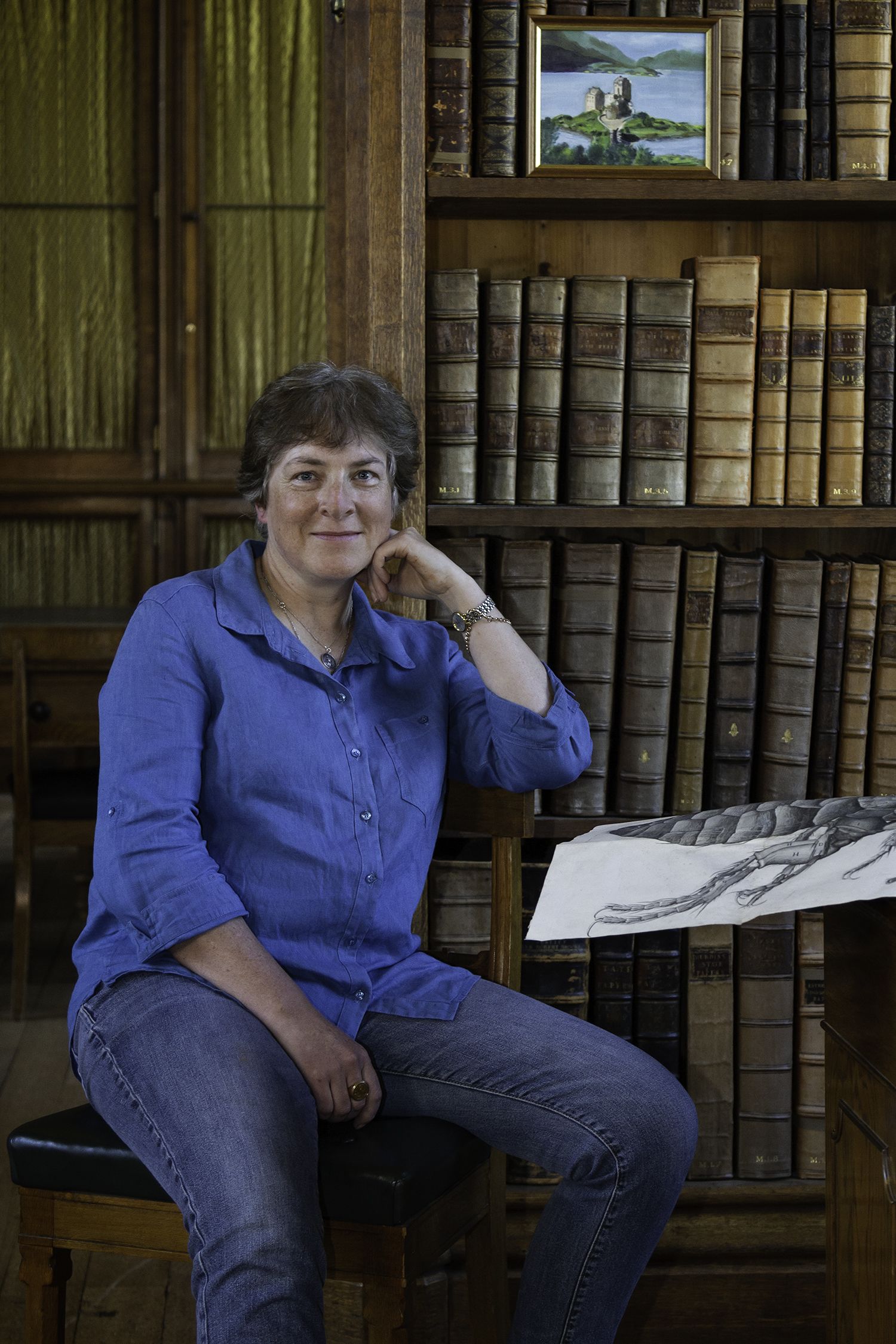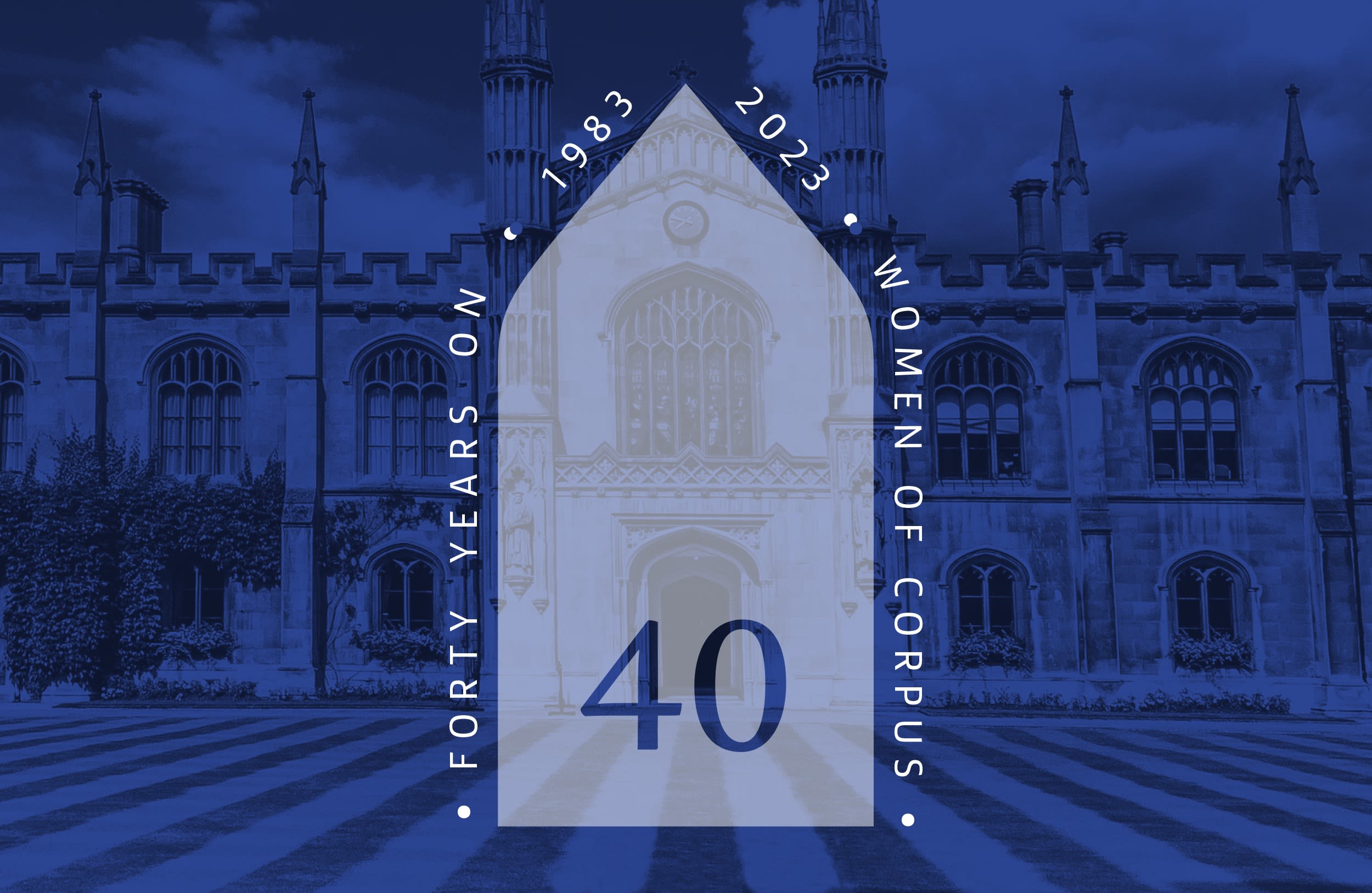Professor Judy Hirst FRS FMedSci
MA DPhil (Oxford)
NATURAL SCIENCES PHYSICAL

“There are two significant objects in this picture. The first is the small painting on the shelf behind, which is a painting of Eilean Donan castle by my grandmother, Irene Carter, an influential figure in my early life, who was not put off by a challenge and already taking steps towards gender equality in Huddersfield in the 1930s as the first woman in the (technical) drawing office at ICI. She was so proud of me when I got into Oxford and would be ‘thrilled to bits’ to see her painting feature in Corpus.
The second object is Robert Hooke’s flea plate, in the first major book on microscopy, Micrographia, published in 1665 by the Royal Society. Hooke was a scientist, experimentalist, and polymath (not only a microscopist), and instrumental in the early years of the Society. We have much more powerful microscopes now, including the cryo-electron microscopes I use in my own research, but the sense of wonder in seeing something from the natural world for the first time in all its glory remains, and is captured here in this book. I take all my scientist visitors to Corpus to the Parker Library to look at the flea!”
Judy is currently Director of the Medical Research Council Mitochondrial Biology Unit (MRC-MBU) at the University of Cambridge. The MRC-MBU aims to understand the fundamental biochemical and biological processes taking place in mitochondria, the powerhouse of the eukaryotic cell, and to learn about the involvement of mitochondria and mitochondrial dysfunction in human diseases - in order to develop new therapies to treat them.
Her research combines structural, biochemical and chemical techniques to pioneer studies of energy conversion in complex redox enzymes: how they capture the energy released by a redox reaction to power proton translocation across a membrane, or catalyse the interconversion of chemical bond energy and electrical potential. In particular, she works on the mechanisms of catalysis and reactive oxygen species production by mammalian respiratory complex I (NADH:ubiquinone oxidoreductase), a megaDalton energy-transducing, mitochondrial redox enzyme of fundamental and medical importance, including determination of its structure by electron cryomicroscopy (cryoEM).
Having grown up close to Huddersfield in West Yorkshire, in a village her family have lived in since records began, Judy studied chemistry at St. John's College Oxford. Following a D. Phil, also in Oxford, in the group of Fraser Armstrong, she held a Wellcome Trust Prize International Fellowship at The Scripps Research Institute in La Jolla, California, before joining the MRC-MBU in Cambridge. Judy was elected a Fellow of the Royal Society in 2018 and a Fellow of the Academy of Medical Sciences in 2019.
